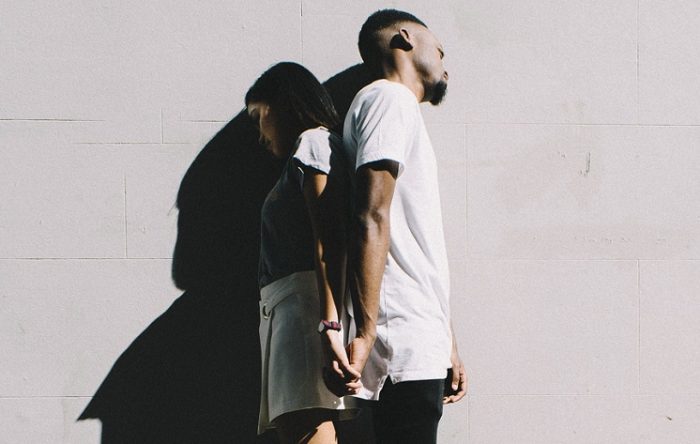Recently a friend of mine was going through a breakup.
Usually, I’m pretty good at breakups, unless, of course, they are my own—as my friends who saw me throw the entirety of my ex’s suitcase into a hotel pool in Bali back in 2014 will attest to.
In those tender times, there’s nothing anyone can really say to make it better. But I’m good at listening and finding the silver lining in heartbreaking situations. So when this friend informed me she had terminated the relationship, I had my pump up speech ready to go. It was along the lines of: “Congratulations girl! You got your independence back. The world is your oyster, so go get yours. Yee-ha!”
But this time, my friend looked at me, confused.
“What do you mean I got my independence back? Where did it go?”
It was then that I realised something about myself: in my brain, relationships and independence were two mutually exclusive things, sitting at opposite ends of the scale. Like Voldemort and Harry Potter, neither could live while the other survived. Which is why I have largely avoided them for the majority of my life.
Because I have seen it—time and time again.
I have seen friends with goals as big as the moon reduced to Friday nights on the couch with their partner, week after week after week.
I have seen women who used to roar loudly for equality now laugh at racist, homophobic, or sexist jokes from their new partner, ignoring the bile that rises in their throat as they do, because it just feels so good to be accepted by the person you love.
I have seen women who have only ever wanted to travel the world stay in their home country because their boyfriend at the time told them, “People who just want to travel all the time are living an escapist life.”
That last person was me.
You know what happens to those people who lose themselves for a relationship? They either start dying slowly, or one day they crack. I learnt this as I stood there watching my ex and his friends fishing his T-shirts and underwear from the shallow end of the pool that fateful day.
How does this happen? How come for some people, men and women, the deeper they fall into love, the more they forget who they are and what they want? How do they forget all the stuff that makes them burn with passion for life?
When we’re single, we’re our own pick-me-up, so we do all this stuff for ourselves to keep feeling like a badass. We put ourselves in challenging conditions outside our comfort zone. We go balls to the wall with our career goals. We work out like a beast—not because we’re obsessed with what our body looks like, but because being covered in sweat with our lungs burning as we push ourselves through another Kayla Itsines circuit strangely makes us feel incredibly sexy. We fill our own cup with friends and fun times and adventures and personal bests.
We are responsible for our own happiness.
I think a big misconception is that when we get into a relationship, that responsibility for our own happiness shifts from ourselves to our partner. Being in a relationship, I found, gives us a source of validation we can drink from whenever we need a boost. And logistically speaking, why wouldn’t we drink from the lake that’s only one meter away and easily attainable, rather than travelling to the lake on a path that’s fraught with hard work, a whole lot of positive self-talk, and challenging situations—like working to make our own damn self happy?
When we’re in a relationship, it’s easy to take the shortcut and drink from the relationship well for validation instead of doing all the work we used to do to be our own champion, every day.
All this hit me like a 10-foot pole that night my friend looked me in my eyes and asked, “What do you mean I get my independence back?”
“It’s easy to fall in love. But it’s harder to rise in love,” says Mylène Bergeron, manual therapist and founder of Deepflow.
It’s easy to fall in love and let ourselves drown in the sensation of loving someone and having them love us, because it feels so f*cking good. It’s easy to let some of our long-established routines slide, because who needs that post-workout endorphin kick when we’re already riding high from the dopamine and serotonin of that morning’s sex session?
It’s easy to go to our love for the encouragement we used to give ourselves.
But when it’s years down the track and we feel like we’ve lost ourselves, we can’t blame the relationship, or even our partner. Because the relationship didn’t take our independence away—we did, the second we stopped showing up for ourselves and started expecting someone else to do it for us.
When we fall in love with someone, we should not make the mistake of thinking that because they love us for who we are at that moment, we have to freeze time and remain that person in order to keep their love. That, I think, is a fatal error: to stop growing, to stop making space in our lives for change and evolution.
But that’s not what they fell in love with about us. They fell in love with the fire that burned in our eyes, how committed we were to growing, to living, to experiencing, to being the absolute best version of ourselves we could be.
Good, healthy relationships are not about completing each other—they’re about being in relation as two whole, self-actualized beings who choose to share love. It’s about supporting each other’s goals and wanting them to be as big as they can. It’s about watching them grow and change and not fearing that change.
Be the person they fell in love with.
Be loud, ambitious, driven, and intense. Acknowledge that no matter how dope our significant others might be, they are only a slice in the pie that makes up our whole life. And we can’t lose our hobbies, friends, history, family, or the passions that keep us awake at night.
That’s how we can be in love and be independent.
And just to clarify: I do not condone the throwing of any ex’s property into swimming pools—no matter how immensely satisfying it feels at the time.
~







Read 0 comments and reply